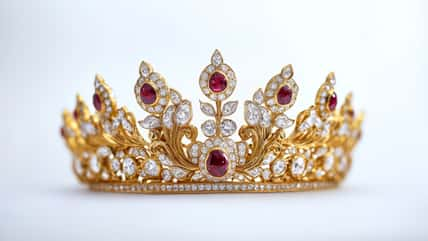After The Great Chicago Fire of 1871 Destroyed Everything She Owned, She Had An Urge To Help Rebuild The City, And Began A Life of Advocating For Laborers In The Process

Have you ever heard of a woman in history who was referred to as “Mother Jones?”
Mary Harris Jones held that nickname, as she was one of the most prominent female labor activists of the 19th century.
Mary was born in Ireland in 1837 and immigrated with her family to Canada when she was five years old. As she got older, Mary became a teacher and moved to America. She taught at a school in Michigan, then later took on another teaching job in Memphis, Tennessee.
In 1861, she married George Jones, who was a member of the Iron Molders Union. Within six years, they had four children together.
Mary’s life turned upside down when a yellow fever epidemic hit Memphis and killed her entire family. She lost George and all of her children. Before getting married, she had briefly lived in Chicago and worked as a seamstress. So, after losing her family, she moved back and opened a dress shop.
Then, more tragedy struck Mary’s life when the Great Chicago Fire of 1871 happened and burnt up everything she owned. After the fire, she had an urge to help others like herself rebuild the city and their lives. She began attending meetings for the Knights of Labor and, in the late 1870s, began a life of advocating for laborers.
Mary began organizing and participating in strikes and protests, one of her firsts being the Great Railroad Strike of 1877. By the 1880s, she had been involved in hundreds of strikes and eventually became involved with the United Mine Workers. She organized strikes that encouraged workers never to stand down, even when the militia was brought in.
Mary quickly became the strong, opinionated voice representing many American workers and labor unions. By the time the 1900s rolled around, workers referred to her as Mother Jones, and she began working on the East and West coasts.
No one was excluded from Mary’s protests, and she was known for encouraging the women and children of mistreated workers to protest as well. For instance, when many children were forced to work in mills and mines, she organized the “March of the Mill Children” in 1903.

rudi1976 – stock.adobe.com- illustrative purposes only
During the march, young people who had fallen victim to child labor walked from Philadelphia to President Theodore Roosevelt’s summer house on Long Island, chanting that they’d rather be in school than working in a mine.
Interestingly, while she was such a vibrant activist, Mary was not a big supporter of women’s suffrage. She believed that women did not need the right to vote in order to make their voices heard and felt that liberating the working class was a bigger priority.
Mary was also in trouble with the law here and there, as some of the protests she organized would get out of hand. During a violent strike in West Virginia in 1913, Mary was arrested and accused of conspiring to commit murder. Members of the public had to make appeals on her behalf, and her sentence was eventually commuted.
In 1925, she wrote all about her time as an accomplished activist in her autobiography, “Autobiography of Mother Jones.” Mary’s activist spirit never dwindled. Even in her nineties, she was still organizing miners in protest.
Mary lived out her final days with friends in Maryland and passed away in November 1930 at 93.
If true crime defines your free time, this is for you: join Chip Chick’s True Crime Tribe
I’m Sure You’ve Heard About The Royal Ballet, But Do You Know The Story of The Woman Who Founded It?
Seamlessly Transition Your Home Decor From Summer To Fall With These Simple Tips
Here’s How You Can Easily Make Tacos Using A Bundt Pan
Sign up for Chip Chick’s newsletter and get stories like this delivered to your inbox.
More About:Chicks We Love





